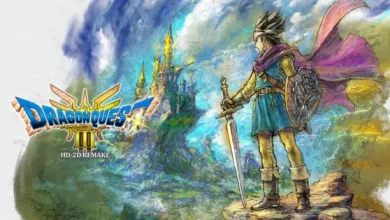A Ballad of Sword and Wine Danmei Novel Review – Review

If you’re a BL fan who hasn’t discovered danmei (Chinese homoerotic romance novels), now is a great time to jump on the bandwagon – just maybe not with A Ballad of Sword and Wine as your first title. It’s a good book and will improve even more as the story continues. Rather it’s that this is the densest danmei that Seven Seas has released (or at least one of the densest), filling its over four hundred pages with an expansive cast of characters, many of whom have both given and courtesy names, and rooted in the politics of an ancient court. It’s a lot to keep track of.
The story is also largely, if not entirely, devoid of the fantasy and wuxia trappings many other novels translated by Seven Seas have. It’s very strictly a tale of political intrigue with an enemies-to-lovers romance slotted in. That’s by no means a detriment. While other series, such as A Thousand Autumns, have dealt with similar topics, this one delves deep into the situation at the court. The emperor is ill and desperately clinging to life and power, dissatisfied with his heir but unable to do anything about it. He’s run roughshod by the empress dowager, who has a vested interest in the rise of her family and their hold on power. When push comes to shove, she tends to be the one who comes out on top. The conflicts of interest are abiding and deep. Our two protagonists, Shen Zechuan and Xiao Chiye, seem to waver between political factions at times. Both have their own interests and motivations, and they’re also playing a long game, which they’re not keen to have interrupted by anyone, including their own potential romance.
Shen Zechuan is, on the surface, the easier to read of the two. He’s the eighth son of a prince who allowed his people to be decimated by brutal warfare, and as the only surviving member of the Shen family, people are anxious to see him pay the price for his father’s actions. It doesn’t matter to them that Zechuan never interacted with his dad, that his mother was a commoner, or that his martial arts teacher raised him; his family name is all they need to condemn him. Zechuan, who suffered a horrific experience in battle, isn’t entirely sure he wants to live when we first meet him. Still, when his death sentence is commuted to imprisonment at the empress dowager’s behest, he’s convinced to start thinking differently. By the time he’s freed five years later, Zechuan has an agenda, or at least a goal, even if he’s not forthcoming about it.
He’s at least slightly more obvious than Xiao Chiye. It’s unclear whether Chiye is truly as dissipated as he appears to be or if he’s putting on an act to fly under the radar, and his actions support both readings. A gifted soldier, he has a grudge against Zechuan, both for his continued existence and because Zechuan got the better of him in their brawl when he tried to attack him shortly after the commutation of his sentence. Chiye can’t quite reconcile himself to any changing feelings he might have for the other man, and by the final quarter of the book is incredibly conflicted about him: he wants him, but he also doesn’t trust him, even though he’s starting to think he might like him. It’s classic enemies-to-lovers, full of angry sexual urges (and angry sex by the end of the volume), interpersonal conflict, and two people who utterly fail to fully understand each other and their own emotions. If that trope is your catnip, this book does a very good job with it.
The entry barriers are primarily in the sheer number of named characters and the twisting nature of the plot. The latter is relatively easily solved by bookmarking the character information at the back of the book; Seven Seas includes these ostensibly to explain the various symbolism of the Chinese characters used to write people’s names, but it also serves as an aide to remember who everybody is. There’s also a glossary of terms, places, and other miscellany which can be helpful, as well as a pronunciation guide, and this volume also has a map in the beginning so that we can see where all of the kingdoms mentioned are placed, which is essential in a war story. Neither the number of characters nor the plot are issues on their own; it’s just that in combination, they can be overwhelming and risk distracting from the actual story and the character development, both of which are essential and very good. The only other glaring issue I want to mention is an intense scene of animal cruelty on page 192. It serves a point (to contrast Chiye with other courtiers), but it’s very hard to read if that’s an uncomfortable issue for you.
St’s illustrations are very attractive. Both color and black-and-white images are included. The pages of the physical edition are also decorated at the corners, which I like, and the entire presentation of the book is beautiful, with thick pages, cover flaps, and the aforementioned color gallery at the front. It feels like you’re getting a lot of books for your buck, which is important since these are the same price as a YA hardcover. The translation (or adaptation) feels a little old-fashioned, but it works for the historical fiction flavor of the story, and it never feels stiff or too formal. This isn’t a great starter series for the danmei-curious (I’d go with one of MXTX’s titles for that), but if you’re already a genre fan, definitely pick this up, because I can easily see it getting even better from here.
Source link
#Ballad #Sword #Wine #Danmei #Review #Review


